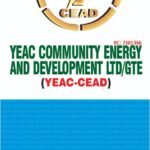PH-BASED NGO LAUNCHES RENEWABLE ENERGY IN N/DELTA COMMUNITIES
calls for legalization of artisanal refineries
Faith Kordoo
 The Youth and Environmental Advocacy Centre, YEAC-Nigeria, a Port Harcourt-based NGO, has unveiled a solar-powered mini-off-grid electricity project for communities in the Niger Delta region.
The Youth and Environmental Advocacy Centre, YEAC-Nigeria, a Port Harcourt-based NGO, has unveiled a solar-powered mini-off-grid electricity project for communities in the Niger Delta region.
This is part of the group’s efforts to tackle the menacing issues of crude oil theft, pipeline vandalism and artisanal refining in the Niger Delta while providing alternative means of livelihoods for youths in the region.
Speaking at the unveiling of YEAC-Nigeria Community Energy and Development Ltd/Gte in Port Harcourt, the Executive Director of YEAC Nigeria, Fyneface Dumnamene Fyneface, said the power project became essential, especially for poor communities that have no access to electricity, as it will see to it that artisans such as welders, hairdressers, barbers and shop owners in such communities will no longer depend on fossil fuels to power their businesses.
He explained that the main aim of the project is to create youth employment and provide alternate livelihood opportunities for youths in the Niger Delta, especially youths involved in pipeline vandalism, crude oil theft, and artisanal refining leading to environmental pollution, as well as contribute to the fight against climate change.
“Contrary to what we know in terms of power generation, this is totally clean and renewable energy; every other power-generating source either uses gas, diesel or PMS. This energy is being sourced from solar and that makes it very different from whatever we used to have and it pushes the call for fossil fuels to be left in the soil because fossil fuels are not doing us any good and now we have alternative sources from solar.
“With the solar mini-grid electricity we are setting up in communities, we are not going to have power failure, we are not going to have low current and we are not going to have a system whereby you pay for electricity and you don’t enjoy the electricity; all those things are not going to be there, so we have brought on board a sustainable clean and renewable energy that is also affordable for communities without electricity in the Niger Delta to mitigate oil theft because those community that normally depend on petrol, diesel and kerosene from artisanal refinery source will now jettison such and then use the renewable energy in their communities.
“Because there is no market again for the artisanal refiners who are breaking the pipelines to sell their products, they will begin to stay away from that and come to the community where they will build their businesses using the electricity in a peaceful environment without being shot at or chased by the security agencies, as it is currently happening in the Niger Delta.
“This is going to give peace of mind to both the communities and youths involved in artisanal refining in the Niger Delta through alternative livelihood opportunities. When you talk about pollution, it is not only at the pipelines; when you have generators and pour petrol or diesel into it everyday, if you look at that spot, it is always very black, which means you have polluted the environment, All these things are going to go out, Fyneface stated.
The YEAC-Nigeria ED also called on the federal government to support its initiatives and legalize artisanal refining in the Niger Delta, maintaining that giving it a legal front will help mitigate pipeline vandalism, Crude oil theft and artisanal refineries in the region, as he advised against the use military offensive to dislodge the artisanal refiners.
“To the federal government of Nigeria, they should try and support our organization and the effort we are putting in place. Every idea, every initiative, and every mechanism that they need to mitigate pipeline vandalism, Crude oil theft and artisanal refineries in the Niger Delta, we have put it out for them. We have told them about the solar mini grid we are doing today: if we provide electricity in communities, people are not going to buy the stolen refined products anymore and for that reason, their pipelines will be safe.
“If they legalize artisanal refineries through the Presidential Artisanal Crude Oil Refinery Development Initiative (PACORDI), we are also going to have a safer environment and the crude that the youths used to refine, they are going to buy it from them
“If they release modular refinery licenses for the youths in the Niger Delta, as promised by former Vice President Yemi Osinbanjo in 2017, we are also going to have a system whereby nobody is going to vandalize their pipelines again. If they also create the Niger Delta Industrial Park that they promised, it’s also going to help the youths in the Niger Delta leave the pipelines alone, but the current method of bombing sites, chasing them with Army, and everything else is not going to work.
“Otherwise, given the number of artisanal refineries they claim to have been destroying every week, why do we still have more? It is because the youths in the Niger Delta who are involved in this are like flood. You can not stop water from it’s channel; you can only redirect water, so they need to redirect these youths to alternative livelihood opportunities, That is the only way they can stop pipeline vandalism.
He also touched on the economic benefits of solar mini-grid electricity, stressing that they are massive.
“The project has enormous economic benefits, we are starting in Umuolu community, Ndokwa East Local Government Area of Delta State, That community has been without electricity since creation, you can imagine since God created this world, the community has not had electricity, so they are very excited to have this. So in that community, businesses would now have to sell off their generators because they don’t need to power their generators anymore.
“That community usually have biannual fishing festival and if you go the community, over half of the fishes caught from the river always perish because they don’t have anywhere to store it because before they could dry all the fishes, most of them had gotten bad, Now they are going to have cold rooms in that community where they can preserve and continue to eat fish throughout the year.
“So we are not just generating electricity for communities; we are also providing what we call funds and resources for the community for them to be able to productively use the electricity once it is produced. The community would use the electricity to empower themselves by going into businesses that would yield good profit for them.
“The project is going to contribute enormously to the youths in the Niger Delta and mitigate the acts of crude oil theft by creating jobs for those youths who are involved in artisanal refining in the region, Fyneface said.”
On the capacity of the grid, he revealed that, at it’s full capacity, the solar mini-grid will generate 81.9 kilowatts of electricity to the community but have a lesser capacity at the initial take off.
“That is the peak of it’s generation, but at the moment we’re trying to start with about half of that by going into about 29.5 kilowatts for the community. We now look at how they are using the electricity, and by the time we see that utilization is increasing, we begin to increase the capacity. If we release all the 81.9 KW into the community now, it will just be like when you have electricity and nobody is using it.”.
 The New Experience Newspapers Online News Indepth, Analysis and More
The New Experience Newspapers Online News Indepth, Analysis and More
